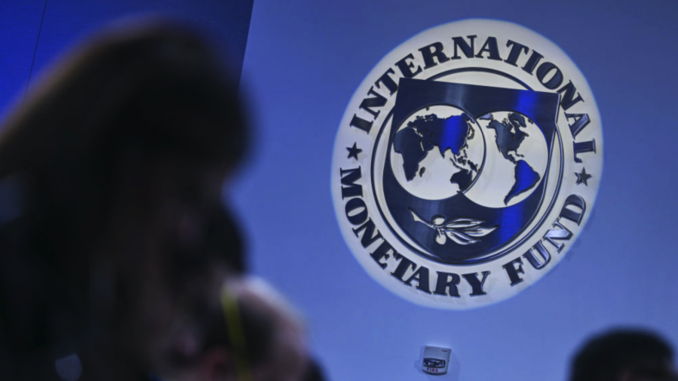
Original Article by Jamie White
Globalist central bank consortium reveals new cryptocurrency system powered by artificial intelligence that will “strengthen the monetary sovereignty of participating central banks.” (they always try and make everything they’re coming out with, sound better than sliced bread.)
The International Monetary Fund (IMF) has unveiled a new Central Bank Digital Currency (CBDC) meant to shore up the embattled international banking system.
The Digital Currency Monetary Authority (DCMA) announced the launch of the Universal Monetary Unit (UMU), also called Unicoin, at the IMF 2023 Spring Meeting, which it claims will “strengthen the monetary sovereignty of participating central banks.”
The DCMA lauds Unicoin as “an innovation in store of value cryptography powered by artificial intelligence (AI). It adopts a central banking monetary policy framework to ensure it has continuous purchasing demand, minimal price volatility, and annual asset pricing targets.”
From the DCMA press release:
Banks can attach SWIFT Codes and bank accounts to a UMU digital currency wallet and transaction SWIFT-like cross-border payments over digital currency rails completely bypassing the correspondent banking system at best-priced wholesale FX rates and with instantaneous real-time settlement.
In an IMF interview with Tobias Adrian, Financial Counsellor at the International Monetary Fund, he states “Cross-border payments can be slow, expensive, and risky. In today’s world of payments, counterparties in different jurisdictions rely on costly trusted relationships to offset the lack of a common settlement asset together with common rules and governance. But imagine if a multilateral platform existed that could improve cross-border payments—at the same time transforming foreign exchange transactions, risk sharing, and more generally, financial contracting.”
According to Darrell Hubbard, the Executive Director of the DCMA, and the chief architect of UMU, “This vision expressed by the IMF is the exact solution the DCMA is delivering to central banks worldwide.”
The consortium of central bank advocates went on to assure the public that Unicoin won’t replace current legal tender in respective countries.
Unicoin “should not be enacted as legal tender for negotiating domestic prices or international trade agreements,” the DCMA said. “Instead, the legislation proposes UMU to be enacted as a complementary money commodity for the store of value, mitigating against potential seasonal and systemic local currency depreciation, and tendered as a payment currency at the time of settlement.”
This comes amid a growing banking/financial crisis that began when Silicon Valley Bank and Signature Bank collapsed last month as the Federal Reserve continues to raise interest rates to supposedly fight historically high inflation brought on by years of excessive money-printing policies.
The uncertain financial environment coupled with the threat of Bitcoin’s ability to undermine government control of currency has prompted the Federal Reserve to announce it will unveil its own CBDC this July.
Civil rights and privacy advocates have warned that CBDCs will essentially remove economic autonomy because central banks will be able to monitor and program how its currency is spent, similar to China and its social credit system.
In fact, European Central Bank President Christine Lagarde recently admitted that CBDCs are meant to consolidate financial control to the central banks at the expense of the people’s financial freedom.
And don’t forget, Bank of International Settlements General Manager Augustín Carstens revealed in 2021 that CBDCs will be used to control populations.
“We don’t know who’s using a $100 bill today and we don’t know who’s using a 1,000 peso bill today. The key difference with the CBDC is the central bank will have absolute control on the rules and regulations that will determine the use of that expression of central bank liability, and also we will have the technology to enforce that.”




 Donate
Donate
Be the first to comment